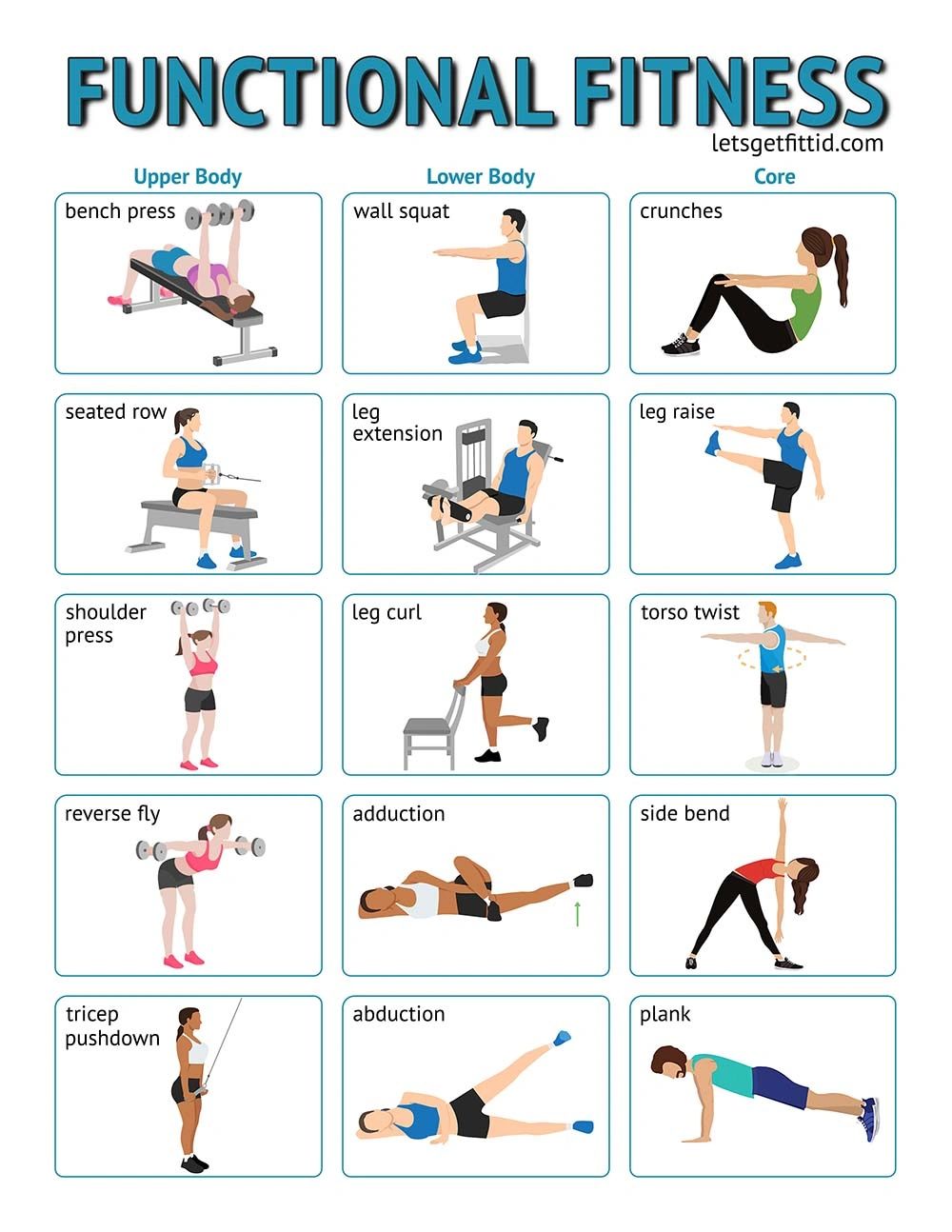Caldas Total Insights
Your go-to source for the latest news and informative articles.
Functional Training: The Secret Sauce to Everyday Strength
Unlock the key to everyday strength with functional training! Discover tips and techniques to transform your fitness routine today.
Why Functional Training is Key to Everyday Strength
Functional training is a form of exercise that focuses on improving the body's ability to perform everyday activities safely and efficiently. By incorporating movements that mimic real-life tasks, such as lifting, bending, and squatting, functional training enhances overall strength and flexibility. This approach not only boosts physical performance but also reduces the risk of injury by promoting proper movement patterns. For instance, incorporating exercises like deadlifts and lunges can directly translate into better performance during activities such as climbing stairs or carrying groceries.
Moreover, functional training emphasizes core stability, which plays a critical role in maintaining balance and posture in daily life. A strong core supports the spine and prevents strain during routine tasks. Regularly engaging in functional workouts, such as kettlebell swings or medicine ball throws, can enhance functional strength, making everyday activities feel easier. Ultimately, by integrating functional training into your fitness routine, you not only improve your physical abilities but also foster a more active and resilient lifestyle.

Top 5 Benefits of Incorporating Functional Training into Your Routine
Incorporating functional training into your fitness routine offers numerous advantages that can enhance your overall performance and well-being. First and foremost, functional training focuses on movements that mimic everyday activities, making it easier to perform daily tasks with improved efficiency. By integrating exercises that target multiple muscle groups, such as squats, lunges, and push-ups, you can develop a more balanced and stable body. This type of training not only increases strength but also promotes better flexibility and coordination, helping you navigate life's physical challenges with greater ease.
Another significant benefit of functional training is its ability to reduce the risk of injury. Since the exercises are designed to improve core stability and joint function, they help protect against strains and sprains that commonly occur during traditional workouts. Additionally, functional training can enhance your athletic performance by improving agility, balance, and endurance. Lastly, this training approach is highly versatile, allowing you to customize workouts based on your fitness level and goals, making it suitable for everyone from beginners to seasoned athletes.
How to Get Started with Functional Training: A Beginner's Guide
Functional training is a fitness approach that focuses on training your body to perform everyday activities efficiently. If you're a beginner looking to dive into this training style, start by familiarizing yourself with the core principles. These workouts often involve multi-joint movements and utilize various muscle groups simultaneously, enhancing your overall strength and stability. To get started, consider incorporating basic exercises such as squats, lunges, and push-ups into your routine. Remember, proper form is crucial to prevent injuries and maximize the effectiveness of each movement.
As you progress, it's essential to create a well-rounded workout routine that incorporates different elements of functional training. Aim to include a mix of strength, balance, and flexibility exercises. For instance, you might want to follow a weekly plan like this:
- Day 1: Strength training (squats, deadlifts)
- Day 2: Balance and coordination (single-leg stands, stability ball exercises)
- Day 3: Flexibility (yoga or stretching routines)
- Day 4: Cardio (jump rope, cycling)
Listening to your body and adjusting the intensity is vital for sustainable progress, ensuring you stay engaged and avoid burnout.